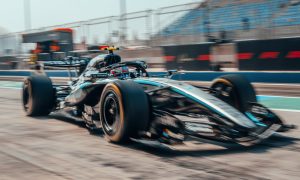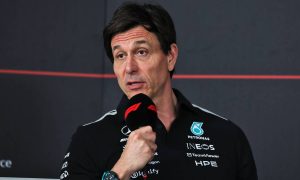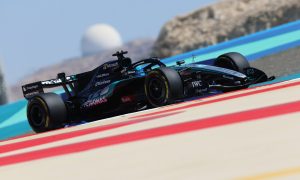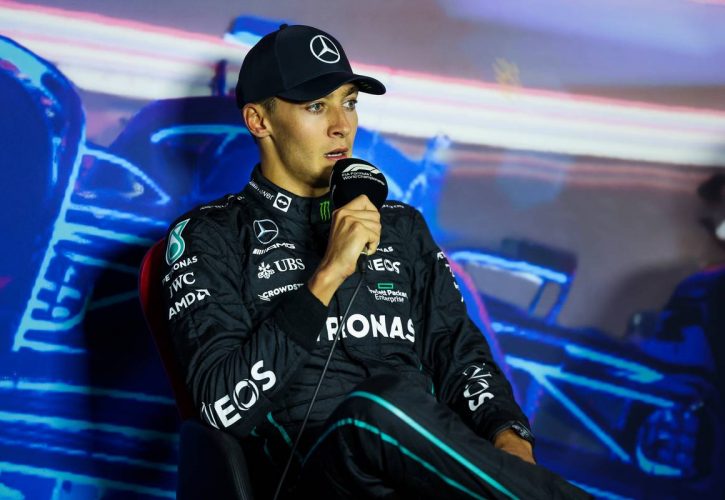
George Russell says Monza's decision to resurface only the racing line of its track in several areas is rather "unique" and creates a bit of an unknown factor ahead of this weekend's Italian Grand Prix.
Resurfacing work has been conducted at the Temple of Speed's three chicanes, or between Turns 1 and 2, at the Variante della Roggia and at the fast Variante Ascari chicane.
However, the resurfacing covers only a limited width of the track, or more or less the racing line, meaning drivers could potentially position their car on two different strips of tarmac.
"Well, it's very unique, because I don't know if you've seen it, but they've actually only resurfaced the racing line," commented Russell ahead of tis weekend's race.
"So they've not resurfaced the whole circuit. At a certain point they've not resurfaced it fully from left to right. Actually, it's about probably four metres wide.
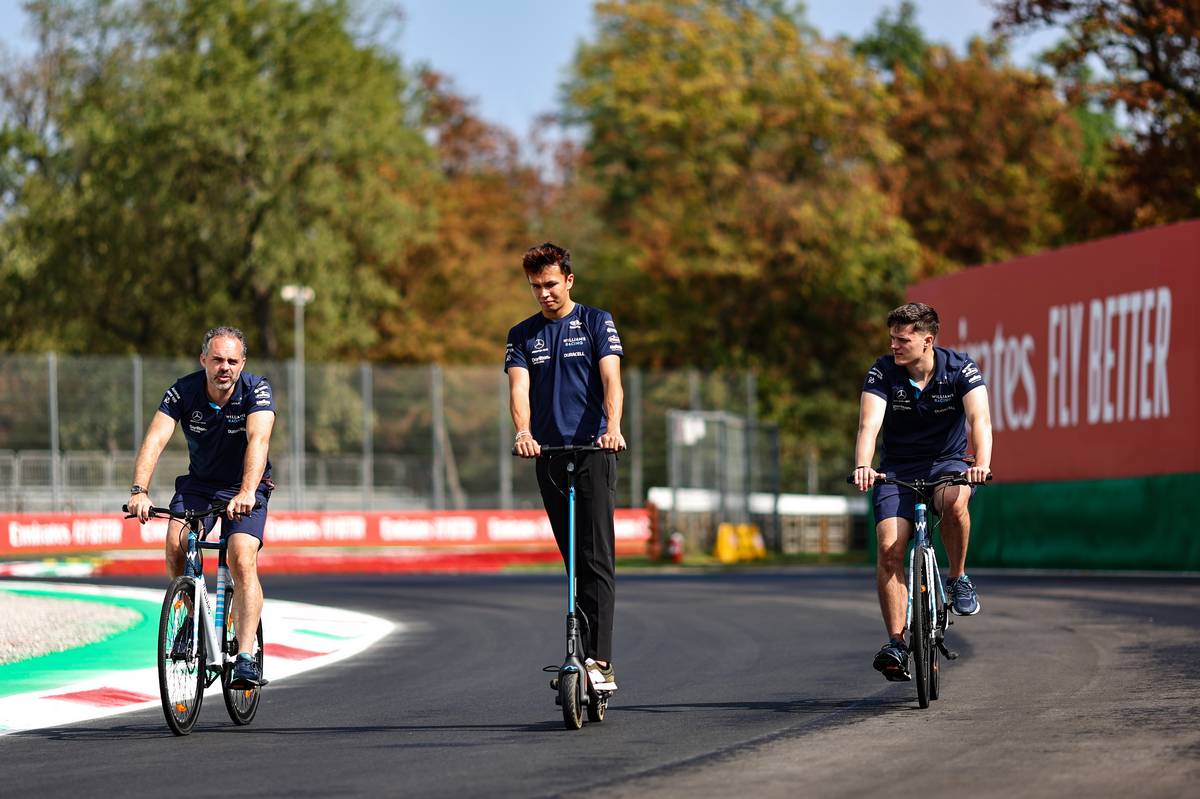
"So I don't really know what it's going to do for racing, if there's two different types of tarmac, one that you're on the racing line, and if you're outside or inside of that, there's less or more grip.
"So we'll have to wait and see how that pans out, and definitely I'll probably be trying that wide line to just get an idea.
"But generally speaking on smoother circuits, it doesn't help our case, because when you've got this really rough, open tarmac, a lot of energy goes through the tyres, a lot of work is being put in them. If anything it probably will work against us."
Mercedes boss Toto Wolff has warned that Monza's high speed, low-downforce characteristics will challenge the Brackley outfit this weekend.
Also, the Silver Arrows squad has typically performed better on race day than in qualifying this season, a disparity that Russell believe is rooted in tyre management and track surfaces.
Read also:
"That's something after 15 races we're still trying to comprehend," he said.
"I think there's no doubt that we're very good at the tyre temperature management. And that probably plays against us in qualifying.
"I think those midfield cars, which potentially induce more temperature into the tyres naturally, can afford to go slower on their out laps, damage the tyre less, and they may have even more performance for a single lap.
"Where you see with us pretty consistently, our out laps have to be so fast in qualifying to get the temperature, then we're damaging the surface of the tyre. And that's probably why we're on the back foot in qualifying.
"But it's just a theory. We don't have a lot of merit to back up that argument just yet."
Keep up to date with all the F1 news via Facebook and Twitter




